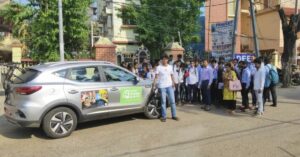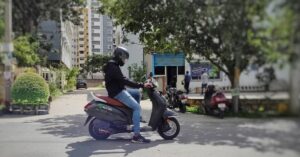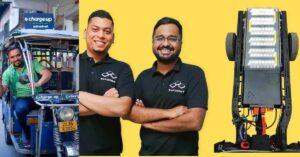Engineer Couple Builds All-In-One ‘Electric Bull’ To Solve Their Village’s Farming Woes
Engineers Tukaram Sonawane and Sonal Veljali returned to their hometown for the first time in 14 years, and vowed to resolve their village’s farming woes with an ‘Electric Bull’, which can take care of all the maintenance work on a farm -- from sowing to the harvest
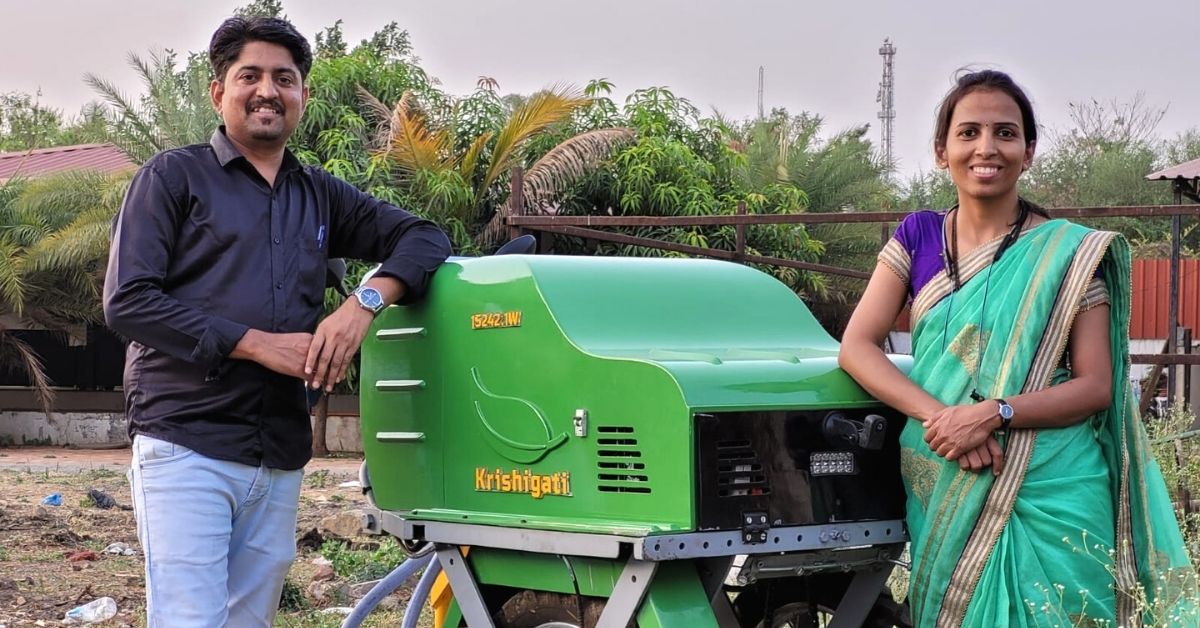
When India locked down due to the pandemic, couple Tukaram Sonawane and Sonali Veljali returned from Pune to Andarsul village, their native town, for the first time in 14 years. And here’s how that visit resulted in an ‘electric bull’.
“We would visit our homes during festivals and other occasions, but not for more than a couple of days, as we had to rush back for our jobs. However, during the lockdown, we started working from home and received an opportunity to spend more time with family and friends,” Tukaram, a mechanical engineer, tells The Better India.
After weeks of staying at home, he realised that not much had changed in his village. The farmers were still struggling to reap better yields. There was little mechanisation, and the community continued to depend on cattle and labour for farm work.
“I learned that many farmers in the neighbourhood were facing these issues. Cattle and labour are expensive, and marginal farmers with half-an-acre or 1 acre of land suffer the most,” he says.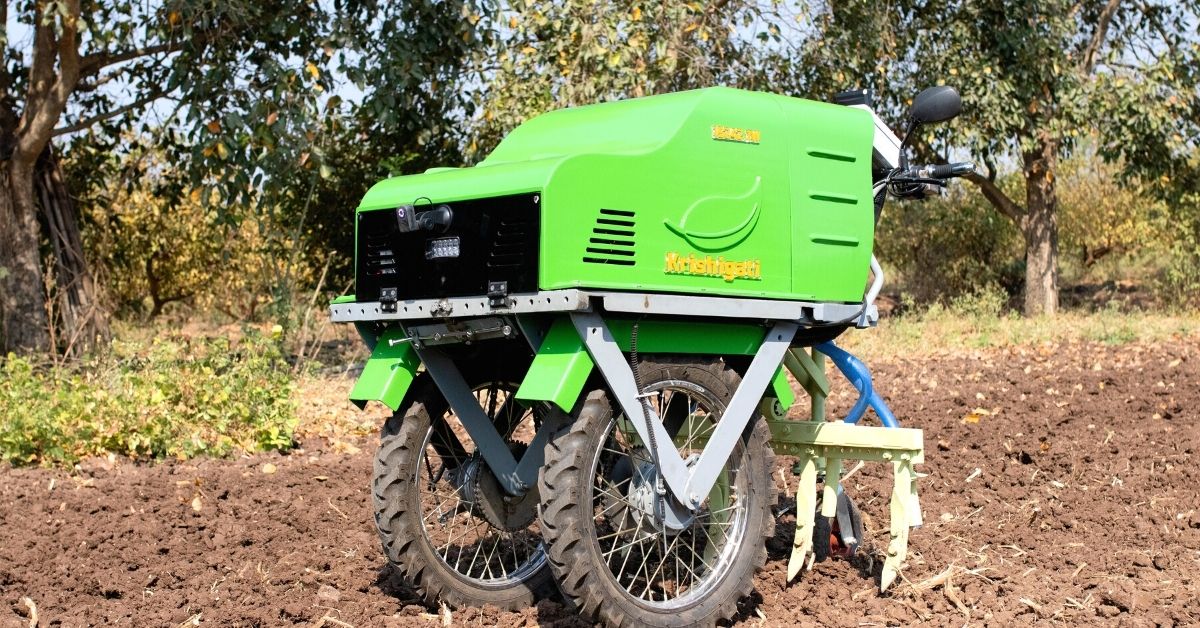
Tukaram and Sonali, an industrial engineer, realised that such issues meant that production costs were extremely high. “The processes of ploughing, tilling, sowing, and spraying insecticides usually take place manually, with the help of labourers. Moreover, there is a constant shortage of bullocks as they are expensive to maintain, and farmers tend to share resources. A delay in any of the processes by even a week directly affects the harvest time, resulting in poor sales. If they sell their produce a week later, they do not fetch good profits,” he explains.
As a solution to this problem, the couple has built an innovative ‘Electric Bull’, which holds big promises to help farmers, especially those with fewer land holdings. They explain how it performs all the processes at 1/10th of the cost.
A single solution for all
During the lockdown, Tukaram and Sonali decided to use their spare time to find a mechanised solution for farmers. “We decided to build a small machine with help from a friend’s fabrication workshop, and sourced the engine and other materials from scrap to design it,” he explains.
But as they started working on their equipment, the news about their activity could not remain a secret for long. “Locals learned about our attempt to build a machine, and curious minds started visiting our home. They appreciated our efforts but, at the same time, shared issues they faced in minute detail. They explained how existing tractors and other equipment affected farming, and openly shared the solutions they needed to overcome existing problems,” he says.
He adds, “There are some procedures that only a bull can perform, as the tractor is too big for the task. For example, bulls can serve the purpose of sowing seeds, as the distance between the plantations can be minimised. But using a tractor reduces the sowing area.”
“About 50 per cent of the village population does not have bulls. Moreover, the weeding plants during growth could not be done by either and required expensive labour. The spraying of insecticides and pesticides was ineffective as tractors could not operate after the plants reached a certain growth due to lack of space,” he notes.
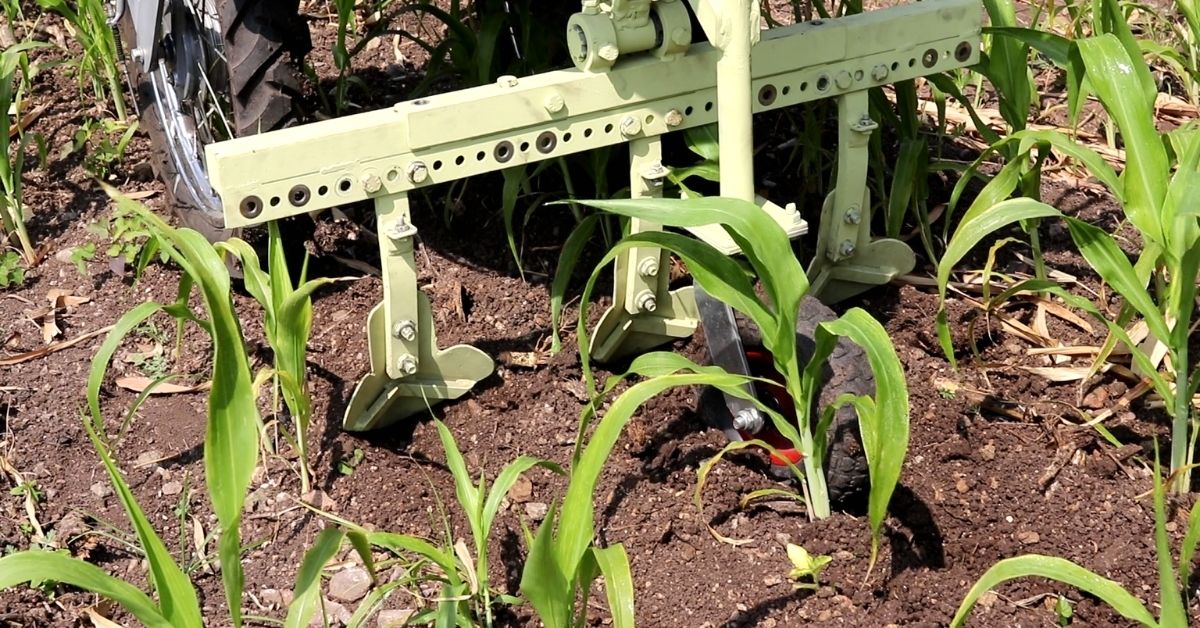
Tukaram says that after months of interactions with farmers, he and Sonali also realised that the requirements change depending on the type of soil and crop undertaken in that particular season. Each needed a customised solution.
“We spent endless nights and days building a machine that effectively performed all the desired tasks,” he recalls.
After working on trials, they conceived an engine-operated equipment that does all the work except ploughing. “Once the farm is ready after ploughing, and the first rain is received, the machine can take care of all the maintenance work, from sowing until the harvest,” he says.
As the lockdown restrictions eased, the couple decided to introduce their innovation at the Centre of Excellence Motion, Pune, a state government scheme that supports startup incubation in agriculture.
“We applied and were scrutinised by a panel. The jury found our machine appealing. One jury member, Ashok Chandak, an entrepreneur leader in agriculture equipment manufacturing, suggested that we convert the machine into an electric one, rather than working on conventional fuel,” Tukaram says.
Based on this recommendation, the duo conceived the Electric Bull. “We also set up a startup named Krishigati Pvt Ltd to sell the product,” he says.
Sonali says their product is the first-ever axle-less vehicle in its segment, meant to serve intercultural operations in all types of food grain crops and selective vegetables. “It is a time and cost saver and can be operated by a single person. Conventional methods require about Rs 50,000 to perform all the maintenance functions for about 2 acres of land. But our equipment does the same in Rs 5,000, thereby reducing the cost to 1/10th. Moreover, the electric equipment can be charged on any single-phase unit and requires two hours for a full charge,” she says.
Once fully charged, the vehicle functions for four hours.
Their innovative machine has already received many demands, she says. “We have not promoted our product much, but farmers and companies from Maharashtra, Andhra Pradesh and other states have approached us with enquiries. So far, we have received about 300 queries, and ten customers have booked the machine. About seven dealers have lined up seeking the product.”
Farmer Subhash Chavan from Ahmednagar district in Maharashtra, who has taken trials of the equipment, says, “The product shows immense potential in fulfilling farmers’ needs. I took trials for the soybean crop and found it efficient in terms of the amount of work I completed within hours. Without the machine, I would have performed the task over three days, with help from around 12 labourers, and the whole thing would have cost me about Rs 5,000.”
He says the innovative machine is beneficial for farmers who cannot afford to buy or rent a tractor. “It is affordable and best suited for marginalised farmers,” he adds.
Connecting the dots

Sonali says the product is under production and will soon be available in the market. “We are also working on six other variants that cater to different needs of the farmers. The geographic conditions and cropping patterns across India are always changing, and we aim to help farmers across the country. Eventually, we are targeting to cater to farmers in the Middle East, Africa, Asia and European countries as well,” she adds.
Despite their immense contribution, Sonali remains humble about her work in the agricultural field. “We only tried to help farmers by using our engineering skills. The community shared valuable inputs and expressed the issues they faced, and we connected the dots. Engineering starts with addressing problems and bringing a solution,” she says.
She adds, “Coming from a farmer family, I have seen farmers struggle since childhood. But the lockdown allowed us to think beyond ourselves and empathise with our community. Most of my relatives are farmers, and the entire fraternity is no different than an extended family to us. We want to change the destiny of farmers for the better.”
Edited by Divya Sethu
This story made me
- 97
- 121
- 89
- 167
Tell Us More
We bring stories straight from the heart of India, to inspire millions and create a wave of impact. Our positive movement is growing bigger everyday, and we would love for you to join it.
Please contribute whatever you can, every little penny helps our team in bringing you more stories that support dreams and spread hope.






